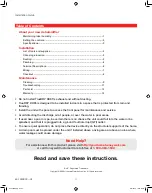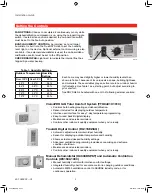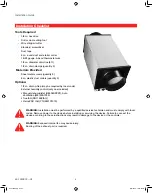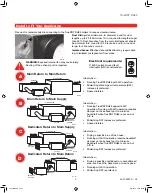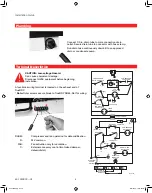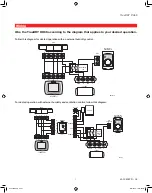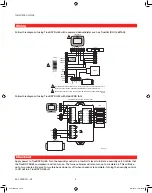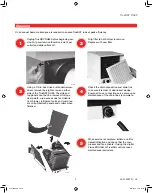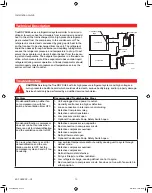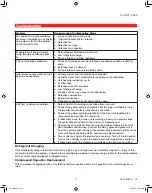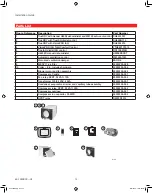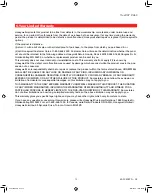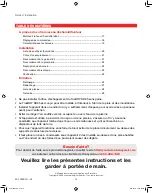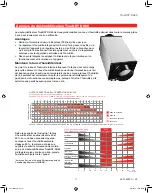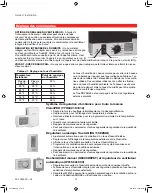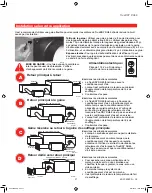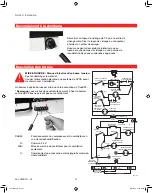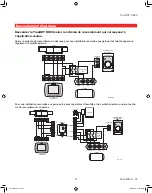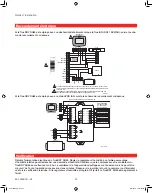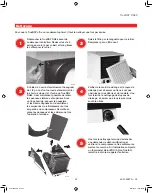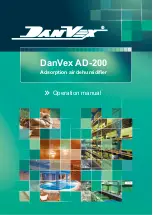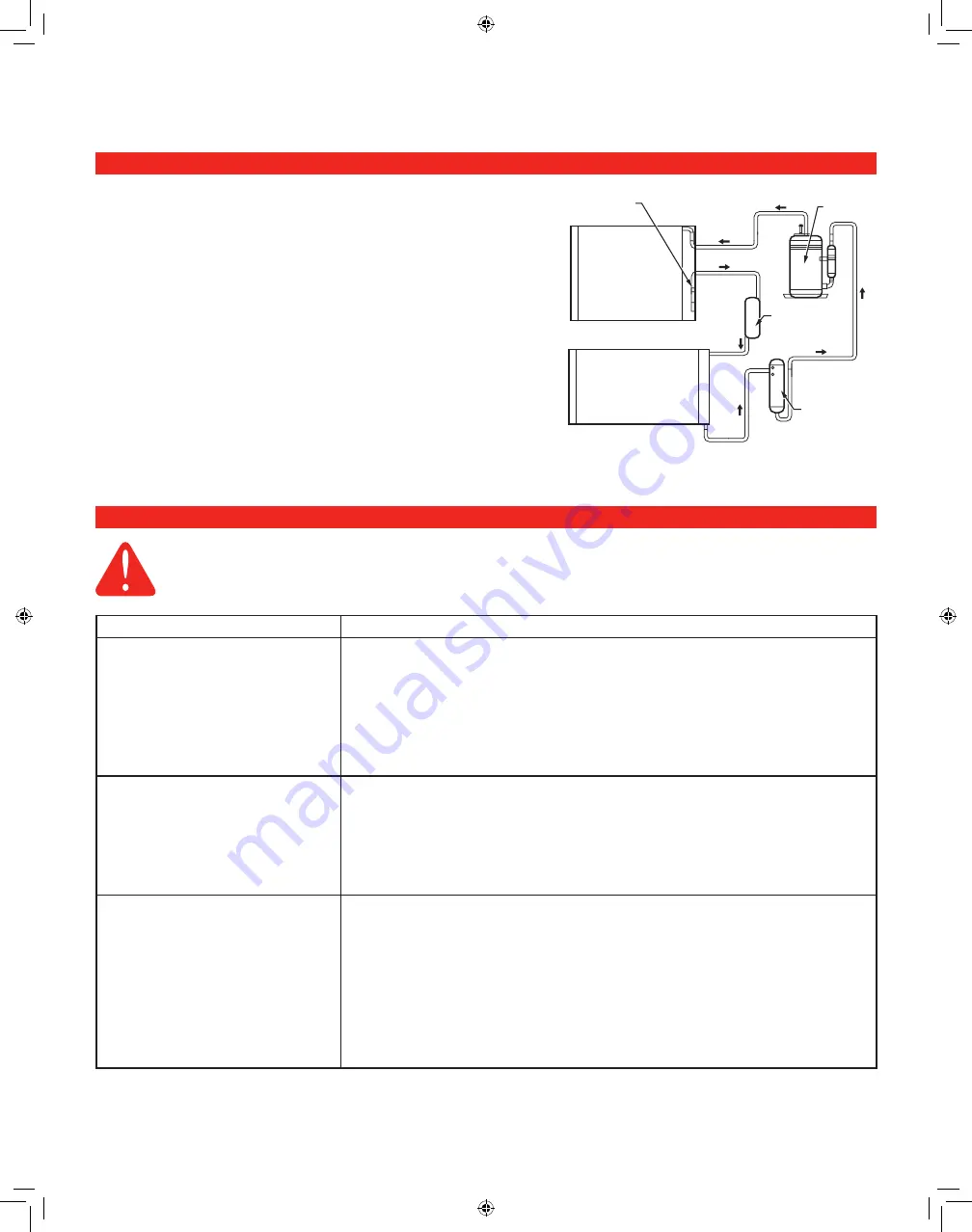
Installation Guide
69-2089EFS—08
10
Problem
Recommended Troublshooting Steps
No dehumidification, neither fan
nor compressor run with fan
switch and ventilation timer OFF.
1. Unit unplugged or no power to outlet.
2. Humidity control set too high or defective.
3. Loose connection in internal or control wiring.
4. Defective Compressor relay.
5. Defective control transformer.
6. Low pressure control open.
7. Optional Condensate Pump Safety Switch open.
No dehumidification, compressor
does not run but fan runs when
there is a call for dehumidification
and the ventilation control is OFF.
1. Defective compressor run capacitor.
2. Bad connection in compressor circuit.
3. Defective compressor overload.
4. Defective compressor.
5. Defrost thermostat open.
6. Optional Condensate Pump Safety Switch open.
Fan runs when there is a call for
dehumidification and the ven-
tilation control is OFF, but the
compressor cycles on and off too
frequently.
1. Low ambient temperature and/or humidity causing unit to cycle through
defrost mode.
2. Defective compressor overload.
3. Defective compressor.
4. Defrost thermostat defective.
5. Dirty air filter(s) or airflow restricted.
6. Low refrigerant charge, causing defrost control to cycle.
7. Bad connection in compressor circuit. Fan does not run with fan switch in
either position.
CAUTION:
Servicing the TrueDRY DH65 with its high pressure refrigerant system and high voltage cir
-
cuitry presents a health hazard which could result in death, serious bodily injury, and/or property damage.
Service should only be performed by a qualified service technician.
Technical Description
CONDENSER
EVAPORATOR
CAPILLARY
TUBES
ACCUMULATOR
COMPRESSOR
STRAINER/FILTER
DRIER
M27404
Troubleshooting
TrueDRY DH65 uses a refrigeration system similar to an air con
-
ditioner to remove heat and moisture from incoming air and add
heat to the air that is discharged. Hot, high-pressure refrigerant
gas is routed from the compressor to the condenser coil. The
refrigerant is cooled and condensed by giving up its heat to the
air that is about to be discharged from the unit. The refrigerant
liquid then passes through a strainer and capillary tubing which
causes the refrigerant pressure and temperature to drop. It next
enters the evaporator coil where it absorbs heat from the incom-
ing air and evaporates. The evaporator operates in a flooded con-
dition, which means that all the evaporator tubes contain liquid
refrigerant during normal operation. A flooded evaporator should
maintain nearly constant pressure and temperature across the
entire coil, from inlet to outlet.
69-2089EFS_D.indd 10
9/22/2008 10:02:41 AM


